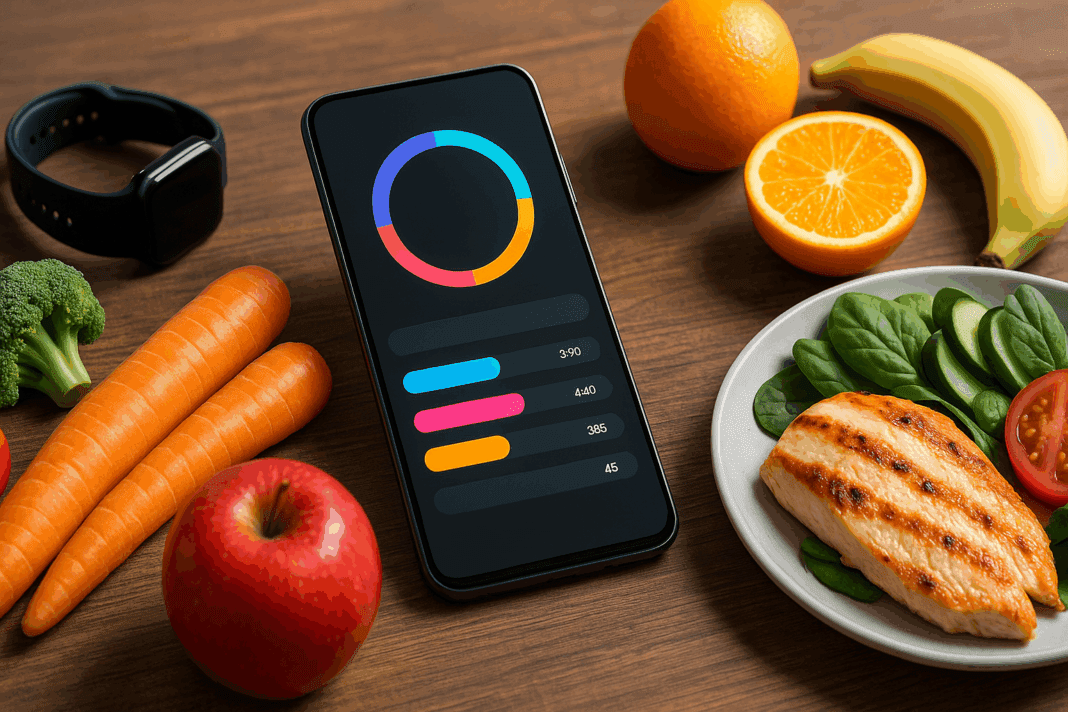In the digital age of health optimization, mobile technology has revolutionized how we approach personal wellness. Among the most widely embraced tools are calorie tracking apps, which blend behavioral psychology, nutritional science, and real-time data analytics into a pocket-sized personal assistant. For individuals seeking to manage their weight, enhance athletic performance, or simply become more mindful of their daily food intake, finding the best calorie tracker app can serve as a pivotal step toward achieving those goals. With so many options available in 2025, selecting the most effective, evidence-based, and user-friendly solution requires a deep dive into what makes a food tracking app truly valuable—and trustworthy.
You may also like: 4 Ways to Have a Healthy Diet: Expert Tips Backed by Science for Better Nutrition and Long-Term Wellness
Understanding the Role of a Calorie Tracker App in Modern Nutrition
At its core, a calorie tracker app functions as a digital tool designed to monitor your dietary intake by logging the foods and beverages you consume throughout the day. These applications often use extensive databases to estimate the caloric and macronutrient content of meals, serving as a personalized food calorie calculator. In recent years, the technology has advanced to include barcode scanners, voice recognition, and artificial intelligence that suggests portion sizes or flags nutrient imbalances. By leveraging these features, users can transform a simple food log into a dynamic nutrition dashboard.
What makes a calorie counter more than just a digital notepad is its ability to deliver real-time insights. For instance, by consistently using a reliable calorie counter app, individuals can identify hidden sources of excess calories, track trends in sugar or fat consumption, and even uncover behavioral patterns like emotional eating or late-night snacking. These insights are not only valuable for those pursuing weight loss but also for individuals managing chronic conditions such as diabetes, cardiovascular disease, or metabolic syndrome. Nutrition, after all, is a foundational pillar of preventive health, and data-driven dietary awareness is one of the most powerful interventions modern medicine supports.
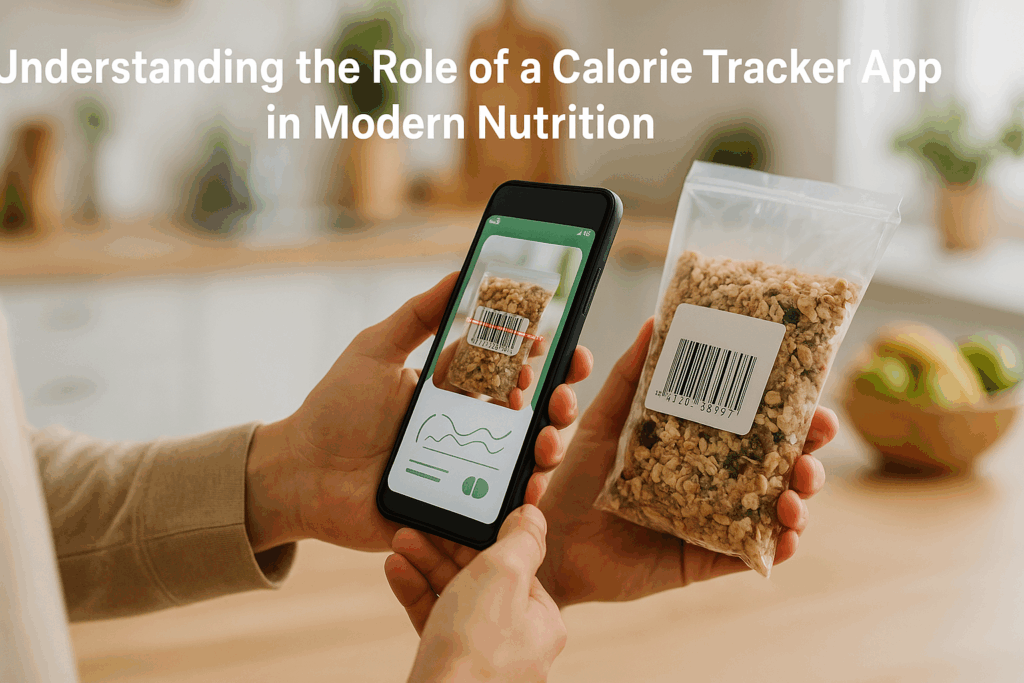
Why Science-Backed Apps Matter More Than Ever
Not all food tracking apps are created equal. While flashy interfaces and novelty features may entice users initially, they don’t guarantee long-term effectiveness. The best calorie tracker apps of 2025 are those grounded in nutritional science, developed with input from dietitians, behavioral psychologists, and healthcare professionals. These apps prioritize data accuracy, user personalization, and actionable feedback rather than relying solely on gamification or aesthetic appeal.
A scientifically sound application to count calories should offer more than raw data. It should provide context and recommendations based on evidence. For example, rather than just alerting a user that they’ve exceeded their carbohydrate goal, a science-backed calorie tracker app might explain how refined carbs can spike blood sugar, impact energy levels, and hinder fat oxidation. It could then suggest more complex carbohydrate alternatives, complete with recipe ideas and glycemic index scores.
Furthermore, the best nutrition tracker apps today integrate seamlessly with wearable fitness devices and health monitoring systems. This interoperability enables more holistic health management, linking food intake to physical activity, sleep quality, hydration, and even hormonal fluctuations. As such, users gain not just a meal tracker but a comprehensive health companion. And in an age where lifestyle diseases are on the rise, that distinction is critical.
Evaluating Key Features in the Best Calorie Counter Apps
When evaluating the best calorie counter app, it’s essential to consider which features align with your specific goals and preferences. A robust food tracking app should possess an extensive food database, one that includes global cuisines, brand-name items, and user-generated content that is vetted for accuracy. Precision matters—particularly when individuals are adhering to strict macro targets or medical dietary guidelines.
User interface and ease of navigation also play a pivotal role in long-term engagement. The best free calorie counter apps in 2025 prioritize streamlined design, intuitive logging, and minimal friction between food selection and logging. The less time-consuming and more accurate the process, the more likely users are to sustain the habit over time. Customizable settings, such as the ability to set macronutrient ratios or daily calorie thresholds, further enhance personalization.
Another invaluable component is the integration of behavioral change support. Whether through daily motivational messages, habit-stacking reminders, or trend analyses, the best food tracking apps for weight loss acknowledge the psychology behind eating behaviors. Some offer journaling features, while others encourage accountability by allowing users to share logs with dietitians or coaches. These added layers of support can significantly influence adherence and outcomes, transforming a simple calorie checker app into a transformative tool.

Free vs. Paid: Choosing the Right Calorie Tracker for Your Budget
A common dilemma users face is whether to invest in a paid version or opt for a free calorie tracker app. While free versions offer impressive features, including meal tracking, barcode scanning, and access to expansive food databases, premium subscriptions often unlock enhanced analytics, deeper insights, and tailored recommendations. However, more expensive does not always mean more effective.
For many users, the best free calorie tracking app may offer all the functionality needed to stay on track. For instance, MyFitnessPal—arguably the most well-known platform—offers a powerful free tier with access to its massive food library and daily nutrition summaries. The MyFitnessPal mobile app free version also syncs with other health apps and wearables, providing a holistic overview of your wellness efforts without requiring a financial commitment.
That said, those seeking more granular data, professional meal plans, or direct coaching may find value in premium services. Whether you’re looking for a calorie counter best suited for managing diabetes, reducing inflammation, or optimizing athletic performance, ensure that any paid upgrade justifies its cost with added value. Especially for users seeking a nutrition tracker cheap enough to fit into a student or family budget, striking this balance is essential.
Top-Rated Contenders for Best Food Tracking App for Weight Loss
Among the numerous applications available today, a few stand out consistently as leaders in the category of best food tracking app for weight loss. Noom, for example, combines cognitive behavioral therapy with calorie tracking, helping users reframe their mindset around food. It is not merely a calorie counter app but a lifestyle coaching platform designed for sustainable change.
Lose It! is another favorite, especially for those who appreciate clean design and straightforward goal setting. Its barcode scanner and portion estimation features make it a good calorie counting app for beginners and experienced users alike. The app also features a robust meal tracker that breaks down macronutrient intake by meal and snack, giving users a detailed overview of their daily consumption.
Cronometer caters more to the nutrition science enthusiast, offering micronutrient tracking, food quality analysis, and in-depth nutrition reports. While it may seem overwhelming to some, it is ideal for users who want a best calorie counter app that dives deeper into data without sacrificing usability. Each of these apps excels in specific areas, and choosing among them ultimately depends on individual needs and goals.
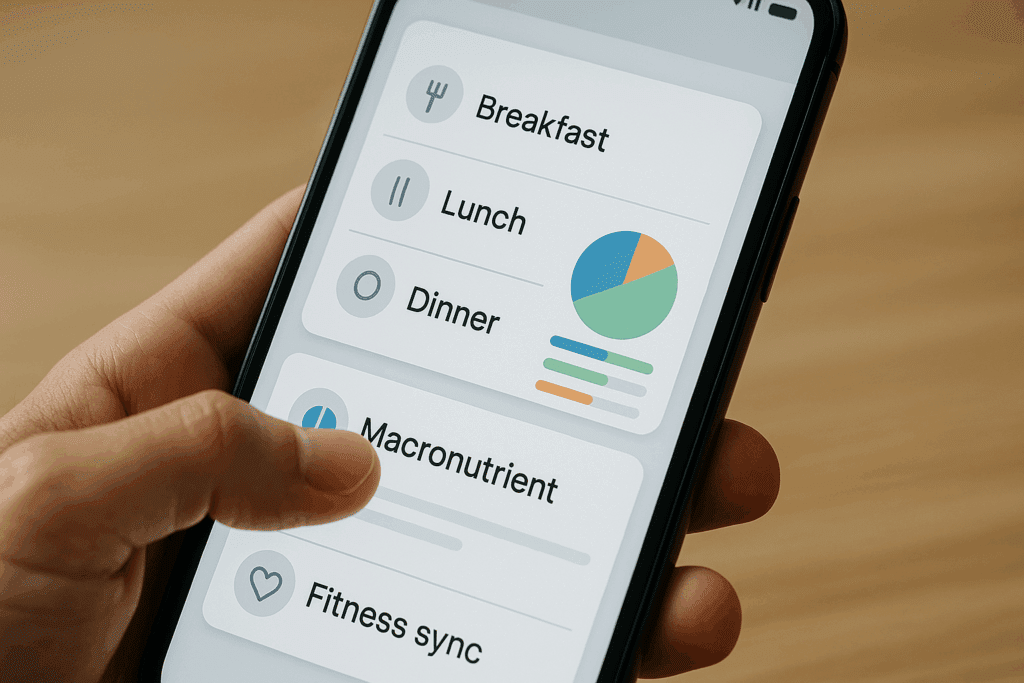
The Rise of AI and Customization in Food Tracking Apps
In 2025, artificial intelligence is not just a buzzword but a cornerstone of innovation in food tracking technology. The best calorie tracker apps now utilize AI to learn user habits, suggest meals based on dietary history, and flag potential deficiencies before they become health issues. These smart systems can detect inconsistencies in logging, recommend hydration levels based on activity, and even adjust goals dynamically based on weight fluctuations.
AI-powered features also enhance the social and educational components of food tracking. Some platforms allow users to receive real-time feedback from virtual nutritionists or chatbot diet coaches trained in evidence-based guidelines. As this technology evolves, users will increasingly experience a shift from passive logging to active guidance, bridging the gap between app and practitioner.
Customization is another area that has seen remarkable development. The best app to calculate calories is one that tailors its experience to your life—whether you’re plant-based, managing an autoimmune condition, training for a marathon, or juggling a busy family schedule. These apps are no longer one-size-fits-all. Instead, they allow for flexible goal-setting, food exclusions, cultural preferences, and even mental health considerations like eating disorder sensitivity.
The Importance of Data Accuracy and Transparency
While ease of use and functionality are important, none of it matters if the underlying data is flawed. A good calorie counting app must prioritize data accuracy and transparency, sourcing food information from verified databases, peer-reviewed literature, or registered dietitian oversight. Misinformation in calorie counts or nutrient profiles can derail efforts and potentially cause harm, particularly for individuals with specific health conditions.
Transparency in how data is collected and used is equally vital. The best free food tracking app should clearly disclose whether it sells user data, how privacy is protected, and what steps are taken to secure sensitive health information. With growing concerns about digital surveillance and data misuse, apps that build trust through clarity and ethical data practices are far more likely to retain users long term.
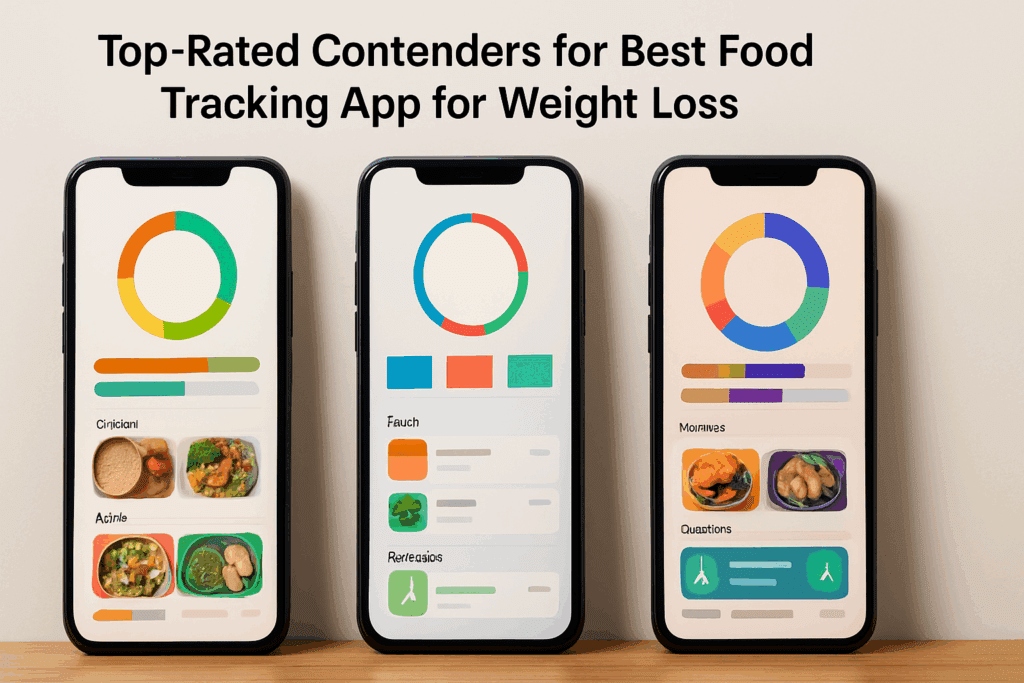
Fitness Tracking Integration: From Food Log to Holistic Wellness
Modern calorie counter apps increasingly serve as hubs for total health monitoring. By integrating with fitness devices like smartwatches, heart rate monitors, and sleep trackers, they provide users with an interconnected view of how food intake affects everything from muscle recovery to mental clarity. This ecosystem approach elevates the food log from a static record into an interactive tool for biofeedback.
For example, the MyFitnessPal app free version links seamlessly with popular fitness trackers, adjusting calorie recommendations based on your physical activity. It also allows users to visualize patterns between diet and energy levels or performance metrics. When your food tracker becomes your wellness dashboard, decisions are no longer made in isolation. Every bite is contextualized by how it fuels movement, impacts mood, and shapes long-term health outcomes.
Avoiding Common Pitfalls: What to Watch for When Choosing a Calorie Checker App
Despite the advantages, not all apps deliver on their promises. Some prioritize aesthetics over function, while others offer misleading health advice not backed by science. When evaluating the best app for tracking food, be wary of platforms that promote restrictive eating, demonize entire food groups, or encourage rapid weight loss without medical supervision. These red flags may contribute to disordered eating behaviors or reinforce unhealthy relationships with food.
Look also at how frequently the app updates its food database. A food calorie calculator with outdated information can be as detrimental as one that lacks diversity. Additionally, apps that are riddled with advertisements or offer little in the way of user support can become more frustrating than helpful. Remember, the best free calorie counter app is not just about being cost-effective but about maintaining quality and ethical standards.
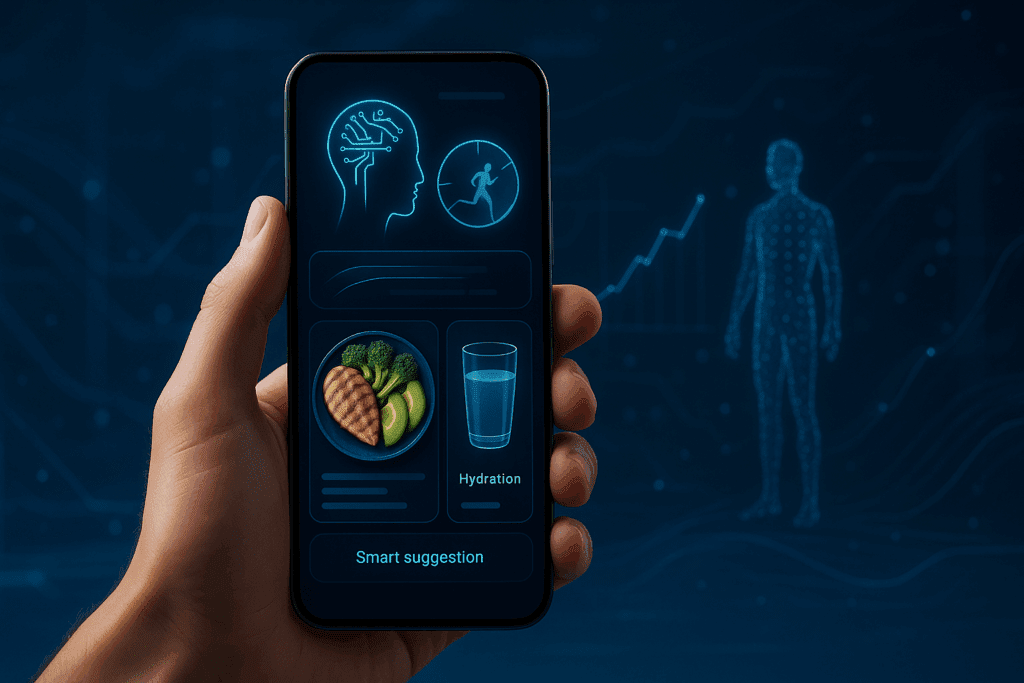
Frequently Asked Questions: Best Calorie Tracker Apps of 2025
What should I look for in the best calorie tracker app if I have dietary restrictions or food allergies?
When choosing the best calorie tracker app for specific dietary needs, customization is essential. Look for platforms that allow you to tag allergens, restrict certain food groups, or filter meals by specific nutritional goals. A robust food tracking app should include detailed ingredient lists and allergen disclosures, which can help prevent accidental exposure. Some of the best nutrition tracker apps even use AI to flag common allergens in branded or restaurant foods, which enhances safety for users with sensitivities. If you’re managing dietary needs such as gluten intolerance, shellfish allergies, or a vegan lifestyle, the best free food tracking app should offer filtering features and nutrient replacement suggestions for safer, smarter eating.
Can a calorie tracker app actually help with long-term weight maintenance, not just short-term loss?
Yes, especially when the app evolves with your changing goals. While a calorie counter is often marketed for weight loss, its real power lies in promoting mindful eating and long-term habit formation. A good calorie counting app will allow you to transition from deficit tracking to maintenance mode with ease. Many users find that the best free calorie counter app gives them just enough structure to stay aware of portion sizes and macronutrient balance without becoming obsessive. Long-term users of the best food tracking app for weight loss often shift their focus from simply logging numbers to analyzing trends and fine-tuning their nutrition for energy, sleep quality, and metabolic health.
How accurate are the databases used in most calorie counter apps?
While most calorie counter apps pull from extensive databases, the accuracy can vary depending on the source of the data. The best calorie counter app typically verifies food entries through nutritionist input or scientific literature, ensuring users get reliable results. However, some platforms—especially those that rely heavily on user-generated content—may present inconsistencies in portion sizes or macronutrient breakdowns. To get the most out of a calorie checker app, choose one that updates frequently and flags questionable entries for review. A trustworthy application to count calories should prioritize data integrity and include barcode scanning to reduce manual input errors.
Is it possible to track micronutrients with a free calorie tracker app?
Surprisingly, yes. While not every free calorie tracker app provides detailed micronutrient tracking, some of the best free calorie tracking apps have expanded their offerings. You can now monitor intake of vitamins, minerals, and even omega fatty acids without paying a premium. These insights are especially helpful for those focused on improving overall health rather than just hitting a calorie goal. A comprehensive food calorie calculator will let you see if you’re falling short on nutrients like vitamin D, magnesium, or iron. This feature transforms your calorie tracker app from a basic food log into a holistic nutrition evaluation tool.
How does food tracking influence your relationship with food and eating behaviors?
Food tracking can be both empowering and revealing, especially when approached with the right mindset. Using a meal tracker consistently often helps people identify emotional eating patterns, grazing tendencies, or mealtime inconsistencies. A food tracking app that includes journaling prompts or mood logs can foster better self-awareness and promote healthier coping mechanisms. However, it’s important to choose a best calorie tracker app that promotes balance rather than restriction. The best app for tracking food supports psychological wellness by allowing flexibility, incorporating rest days, and encouraging a positive narrative around nutrition.
Can the myfitnesspal mobile app compete with newer calorie tracker technologies in 2025?
Absolutely. Although newer apps boast advanced AI and sleek interfaces, the MyFitnessPal mobile app remains a top contender thanks to its extensive food database, robust integrations, and community support. For many users, MyFitnessPal strikes the right balance between user-friendliness and functionality. The myfitnesspal app free version offers a powerful set of tools that rival those found in some paid alternatives. Its longevity also means that it has had time to refine its accuracy and usability, which is why it’s still regarded as one of the best calorie tracker platforms available. As newer trends emerge, MyFitnessPal continues to evolve with updates and user-driven features.
How can a calorie tracker app support athletes or people with performance-based goals?
For athletes or individuals training for endurance events, a calorie tracker goes beyond weight control. A good calorie counting app can help track the timing and composition of meals to optimize recovery and performance. The best calorie counter app will let you set goals for protein intake, carbohydrate loading, and electrolyte balance. Integration with fitness wearables allows you to align your caloric output with nutrient intake, improving training efficiency. Whether you’re a recreational runner or a competitive lifter, the best app to calculate calories helps ensure your fueling strategy supports both gains and recovery.
What are some psychological pitfalls of using a calorie counter app daily, and how can they be avoided?
Daily use of a calorie counter app can sometimes lead to perfectionism, food guilt, or obsessive tracking behaviors. To mitigate this, it’s important to view your food log as a tool for learning rather than judgment. Choose a calorie tracker app that encourages flexibility, includes rest days, or allows unlogged meals without penalty. Many of the best free calorie counter apps now offer mindfulness features and educational prompts to promote a healthy tracking experience. If you find yourself overly fixated on numbers, consider shifting focus to weekly trends or nutrient diversity rather than daily calorie limits.
Are there affordable options for those who want advanced analytics but have a tight budget?
Yes, there are several nutrition tracker cheap alternatives that provide high-level insights without premium pricing. Some of the best free calorie tracking apps include nutrient density scores, weekly reports, and predictive trend graphs. These features give users a deeper understanding of their dietary patterns, without the need for a paid subscription. Additionally, open-source projects and nonprofit-backed platforms have created free food tracker apps that rival their commercial counterparts in both functionality and transparency. When selecting a best free food tracking app, look for one with transparent data policies, an active development team, and support for customization.
How do social features enhance the effectiveness of a calorie counter app?
Social support is a powerful motivator, and many food tracking apps now integrate community forums, challenge groups, or coach access. When users feel connected to others with similar goals, their commitment tends to increase. The best food tracking app for weight loss might include shared meal logs, friendly competitions, or team-based calorie challenges to encourage adherence. A calorie counter app with social features also creates opportunities for accountability and celebration of progress. This shared experience can make the process feel less isolating and more rewarding, especially during challenging lifestyle changes.
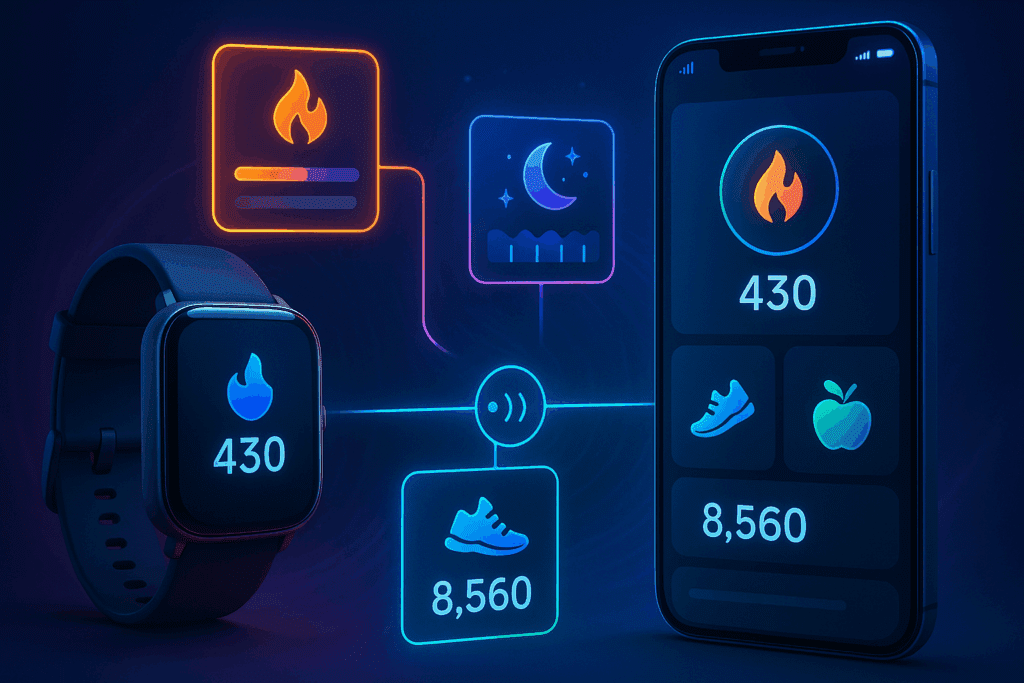
Final Thoughts: Choosing the Best Calorie Tracker App for Long-Term Success
Selecting the best calorie tracker app is about more than aesthetics or popularity. It is a deeply personal decision rooted in your individual goals, lifestyle, and values. Whether you’re seeking a best calorie counter app for weight loss, a best free food tracking app for nutritional awareness, or a best nutrition tracker app to support a medical condition, what matters most is finding a tool that is accurate, evidence-based, and aligned with your long-term wellness journey.
In 2025, the options are abundant, but clarity comes with knowledge. A high-quality calorie counter app should empower rather than restrict, educate rather than overwhelm. From the intuitive MyFitnessPal mobile app to AI-driven innovations and holistic meal tracker platforms, today’s best tools are designed not just for calorie counting, but for enhancing your understanding of food, health, and self. As you explore your options, remember that the most effective application to count calories is the one you can use consistently, confidently, and with curiosity—because lasting health starts with informed, mindful choices.
Was this article helpful? Don’t let it stop with you. Share it right now with someone who needs to see it—whether it’s a friend, a colleague, or your whole network. And if staying ahead on this topic matters to you, subscribe to this publication for the most up-to-date information. You’ll get the latest insights delivered straight to you—no searching, no missing out.
Further Reading:
7 Best Weight Loss Apps in 2025, According to Experts
Best Nutrition Tracking Apps 2025 – Optimize Your Diet & Performance


